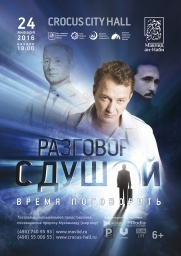 In the beginning of July of this year, an expert meeting on the question of fighting Islamophobia through educational programs took place in Strasbourg. The meeting was organized by the Council of Europe, OSCE Office for Democratic Institutions and Human Rights and UNESCO. It was also attended by members of the Muslim community of Russian Federation: first deputy chairman of the Spiritual Administration of Muslims of European Russia, member of the Civic Chamber of Russian Federation Damir hazrat Muhetdinov and rector of Moscow Islamic University Damir Hayretdinov.
In the beginning of July of this year, an expert meeting on the question of fighting Islamophobia through educational programs took place in Strasbourg. The meeting was organized by the Council of Europe, OSCE Office for Democratic Institutions and Human Rights and UNESCO. It was also attended by members of the Muslim community of Russian Federation: first deputy chairman of the Spiritual Administration of Muslims of European Russia, member of the Civic Chamber of Russian Federation Damir hazrat Muhetdinov and rector of Moscow Islamic University Damir Hayretdinov.
European institutions have been dealing with the problem of Islamophobia for several years now, but this point was first brought on international level only in 2010, and it was not before 2012 that the first conference was convened on this matter. In the words of OSCE counselor and one of the organizers of the program Taskin Taykut Soykan, until that time the topic of Islamophobia was a sort of taboo in Europe. Since Islamophobia has many aspects, including political and informational, a decision was taken to counter this phenomenon by adjusting educational programs. Together with OSCE and UNESCO, the Council of Europe has prepared guidelines to combat intolerance and discrimination against Muslims for distribution among ministries of education and educational institutions of EC member states.
Practical result of this measure varies fr om country to country. In Western Europe it is implemented mostly through private initiative – in schools, through NGOs and so on – but without intermediaries in the form of ministries and departments of education. In Eastern Europe, wh ere civil society is not as well-developed, the situation is much more complex. The very official recognition of Islamic organizations in certain Eastern European countries – for example Moldova – leads to large scandals on the verge of political and religious conflict.
Russian Federation stands the middle ground in this matter. On one side, Russian schools themselves can not (and would not) adopt a programme of fighting Islamophobia, even if the Council of Europe insists upon this measure. Suffice it to recall the recent hijab ban in schools of Stavropol region that goes against recommendation of the Council of Europe to make allowance for Muslim dress code. But on the other side, Russia is one of the few member countries of the Council of Europe that included faith based subject (Fundamentals of Religious Cultures and Secular Ethics), including its module, Fundamentals of Islamic Culture, into its school programme. Both Russian and foreign experts agreed that this factor can be considered positive and worthy of emulation.
The speakers of the conference noted the negative role of media in spreading Islamophobia. SAMER press service reports that Damir hazrat Muhetdinov has especially stressed in his speech the negative role of Western sponsors of Syrian civil war in spreading anti-Islamic attitudes, but the moderators of the conference (Director of Democratic Citizenship and Participation Olof Olafsdottir and Head of OSCE Tolerance and Non-Discrimination Department) decided to bring this discussion to a naught.
It is obvious that Islamophobia will be rising along with the growth of migrantophobia both in the West and in Russia. Because of this and other reasons, programs of countering anti-Islamic sentiments suggested by the Council of Europe are important and will promote prevention of interreligious misunderstanding in European countries, including Russia. During the discussion, specific methodological approaches were discussed – for example, inclusion of classes of Islamic history and culture into curriculum – both in separate countries and world as a whole. Discussions on the dialog of cultures that teachers should invite their students to should follow the rules of etiquette: all conversations should be polite; only viewpoints, and not people speaking them out, should be criticized, and every answer must be objective. Role classes, such as “Red Card to Racism”, “Meet Our Neighbors”, “Breaking Intercommunity Barriers” and others are also encouraged.
RMC press service; photo courtesy of OSCE
 Mawlid an-Nabi in Crocus City Hall
Mawlid an-Nabi in Crocus City Hall
